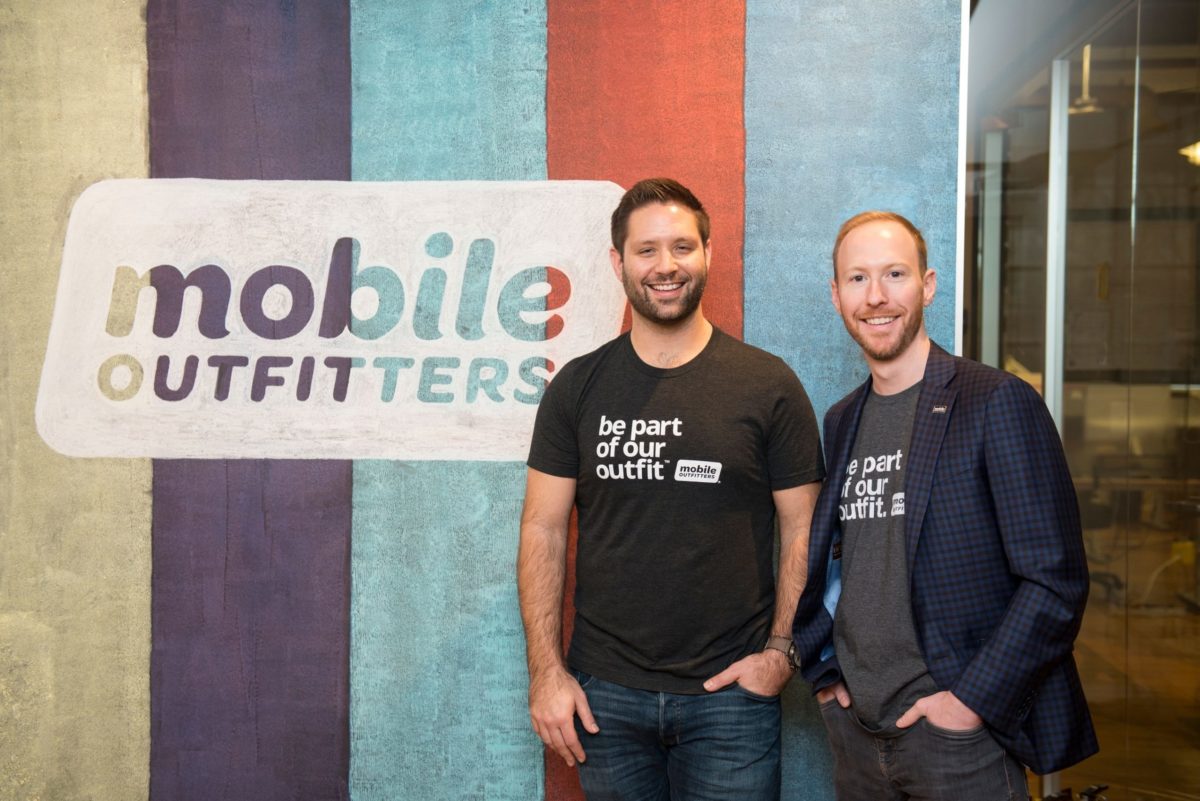Mobile Outfitters cofounder Eric Griffin remembers the excitement around the opening of his company’s new facility at the end of February 2020. After eight years in Manayunk, the cell phone accessory business was ready to move into a larger space.
“We expanded in Manayunk and we love where we are,” he told Technical.ly. “We’re dedicated to staying here and knew we were going to be growing, so we created a nice space for people to work in the office. The office had whiteboards everywhere. You would work Monday through Friday and work from home once a month.”
The world started to shift soon after that move, bringing changes to its work model as a result. It set the stage for shifts in culture that could prove to last.
The company’s master license program allows entrepreneurs around the world to sell Mobile Outfitters goods through their own stores — approximately 800 locations, including shopping malls, including across 55 countries — and Griffin regularly traveled for business. He remembered the tension of walking through an Italian airport during that time, just before COVID-19 cases arrived.
“I was in Milan [at the] end of February 2020 and I was leaving right when [the pandemic began],” he said. “At the airport, guys with guns were taking temperatures. I went out to eat the night before and no one was concerned. I got home [to America] and within a week Italy was locking down, and in another week we were in the pandemic.”
As the pandemic escalated, malls quickly closed and Griffin remembered the company’s revenue plummeting from $13 million in sales to zero overnight. Still, all was not lost: Mobile Outfitters’ RapidCut technology makes it easy to create a plastic screen protector for any type or size of mobile device, and has been popular with customers around the world. With access to industrial materials used for that process readily available at the company’s Manayunk headquarters and permission to reopen the company warehouse, Griffin and his colleagues saw a way to pivot.
Just because you did it yesterday doesn’t mean it will work today.
To support the fight against COVID-19 and regain momentum as a business, Mobile Outfitters also began making face shields and face masks as a PPE business to keep its employees working.
As revenue began coming back into the company, Griffin realized that his company’s success had long been predicated on people working in-person. That had to change if he wanted to company to evolve and sustain itself.
“We realized that our culture was designed for in-person,” he said. “All of our [work] assumed everyone was in the office working. We noticed our culture started to fragment and people felt disconnected. We took a quarter to patch that up and tried little things to bridge the gap, but didn’t commit to work from home.”
That quarter of lower morale affirmed the need for Griffin and his colleagues to make where and how employees worked more flexible. He believes professionals should be in the position to work where they are most effective. For some people that may look like safely returning to the office, while for others, remote work may make the best use of their time.
“Just because you did it yesterday doesn’t mean it will work today. Reinventing culture helps so that we maintain what we built [and that means] a ‘where you’re most effective’ workforce. For anyone leading a company, stop trying to figure out how you can use a lease” — in other words, he said, don’t get caught up in concerns about rent or length of the lease as the basis of making decisions for where your employees work, if possible. Instead, focus on where is best for them individually. “Strike the balance and you’ve got a huge advantage over any other company.”
This quarter, Griffin said, none of Mobile Outfitters’ employees are rushing back to the office — and that’s fine with him. Having a company that supports how employees work best is something that he believes will prepare Mobile Outfitters for whatever the future of work may look like.







